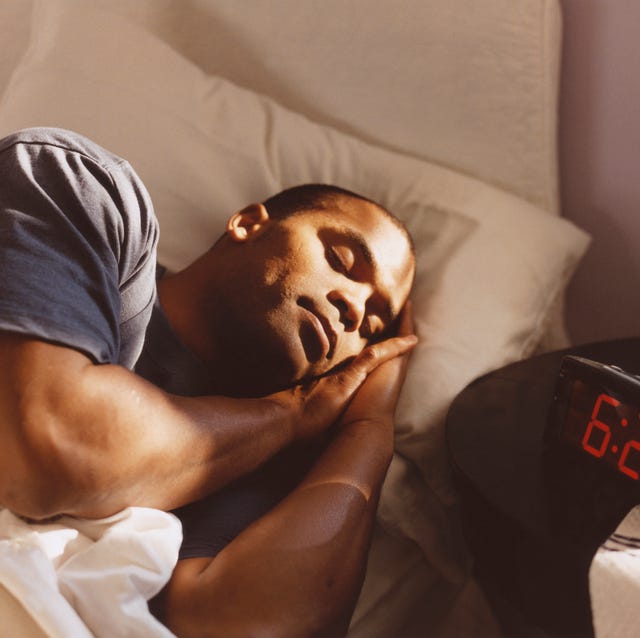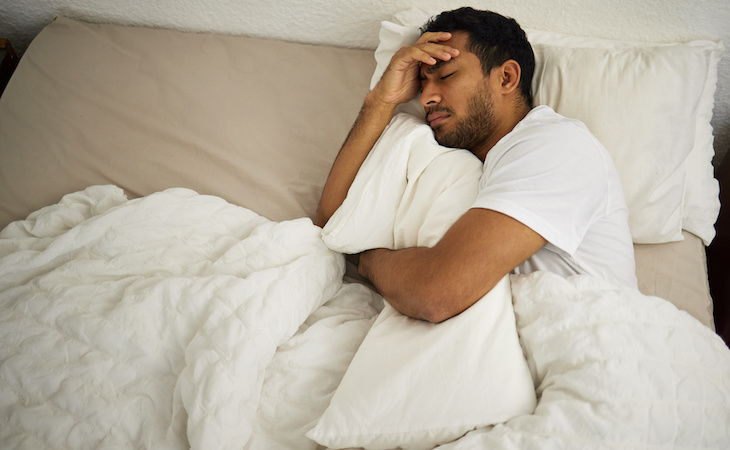Reliable Therapy Solutions for Taking Care Of Sleep Disorders and Enhancing Restful Rest
In the world of medical care, the administration of rest problems and the mission for relaxing rest are essential parts of overall health. Efficient treatment options provide a complex technique to tackle these obstacles, varying from cognitive behavioral treatments to holistic techniques that promote leisure and mindfulness. The expedition of various strategies, including the integration of medicine and light therapy, opens a world of possibilities in the pursuit of far better sleep high quality. As we navigate the detailed landscape of sleep conditions and look for to improve our rest experience, a deeper understanding of these therapy remedies may hold the trick to opening a more relaxing and fulfilling restorative trip.
Cognitive Behavior Therapy for Sleeping Disorders (CBT-I)
Cognitive Behavior Therapy for Sleep Problems (CBT-I) is a structured, evidence-based treatment technique that concentrates on attending to the underlying elements adding to sleep disturbances. This sort of therapy intends to modify habits and thoughts that intensify sleeping disorders, inevitably advertising healthy sleep patterns. CBT-I normally entails several key elements, consisting of cognitive therapy, sleep constraint, stimulus control, and sleep health education and learning.
Cognitive therapy assists individuals determine and alter adverse thought patterns and beliefs concerning rest that may be impeding their ability to drop or remain asleep. Rest limitation includes limiting the quantity of time invested in bed to match the individual's actual sleep period, consequently boosting rest effectiveness (sleep disorder treatment). Stimulus control strategies aid establish a strong organization between the bed and sleep by urging people to visit bed only when drowsy and to prevent engaging in promoting tasks in bed
Furthermore, rest hygiene education focuses on developing healthy and balanced sleep practices, such as maintaining a regular sleep timetable, producing a relaxing bedtime routine, and maximizing the rest atmosphere. By dealing with these variables adequately, CBT-I supplies an effective non-pharmacological treatment for managing sleeplessness and enhancing overall sleep quality.
Sleep Hygiene Practices
Having established the structure of cognitive restructuring and behavioral adjustments in addressing sleeping disorders through Cognitive Behavior modification for Insomnia (CBT-I), the focus currently moves in the direction of exploring essential Rest Health Practices for keeping optimal sleep high quality and total health.
Sleep health techniques incorporate a series of practices and ecological factors that can dramatically affect one's capability to drop asleep and remain asleep throughout the night. Constant rest and wake times, developing a relaxing going to bed routine, and maximizing the sleep environment by maintaining it dark, peaceful, and cool are critical components of good sleep hygiene. Limiting exposure to screens before going to bed, staying clear of energizers like high levels of caffeine close to bedtime, and engaging in regular physical activity during the day can likewise promote far better rest quality.
Furthermore, practicing leisure methods such as deep breathing workouts or reflection before bed can help relax the mind and prepare the body for rest. By including these sleep hygiene methods into one's daily regimen, individuals can establish a healthy sleep pattern that sustains relaxing rest and general wellness.
Relaxation Techniques and Mindfulness
Applying relaxation techniques and mindfulness practices can play an essential duty in fostering a sense of tranquility and promoting quality sleep. In addition, assisted images can aid transfer people to a serene area in their minds, assisting in anxiety reduction and enhancing sleep high quality.
By incorporating these methods right into a going to bed routine, individuals can signify to their bodies that it is time to take a break and prepare for rest. Generally, integrating relaxation techniques and mindfulness techniques can substantially add to taking care of sleep problems and enhancing general sleep top quality.

Medication Options for Rest Disorders
After discovering leisure techniques and mindfulness techniques as non-pharmacological treatments for boosting rest high quality, it is vital to consider medication options for individuals with sleep conditions. In situations where way of life adjustments and treatment do not provide sufficient relief, medicine can be an important tool in handling sleep disruptions.
Commonly prescribed medications for sleep disorders include benzodiazepines, non-benzodiazepine hypnotics, antidepressants, and melatonin receptor agonists. Benzodiazepines, such as diazepam, are sedatives that can help induce rest, however they are usually suggested for short-term use due to the risk of dependancy. Non-benzodiazepine hypnotics like zolpidem are additionally made use of to deal with insomnia and have a lower threat of dependancy contrasted to benzodiazepines. Antidepressants, such as trazodone, can be advantageous for individuals with co-occurring depression and rest disruptions. Melatonin receptor agonists, like ramelteon, target the body's all-natural sleep-wake cycle and can be practical for controling rest patterns.
It is essential for people to seek advice from a doctor to determine one of the most suitable drug choice based click for source on their certain sleep problem and clinical background.
Light Therapy for Circadian Rhythm Policy
Light treatment, likewise called photo-therapy, is a non-invasive treatment technique made use of to regulate body clocks and enhance sleep-wake cycles. This treatment involves exposure to intense light that simulates all-natural sunlight, which assists to reset the body's internal clock. By revealing people to particular wavelengths of light, generally in the early morning or evening relying on the desired impact, light treatment can efficiently readjust the circadian rhythm to promote wakefulness throughout the day and boost relaxing rest in the evening.
Research study has actually shown that light treatment can be specifically helpful for individuals with circadian rhythm disorders, such as delayed rest stage syndrome or jet lag. It can also be valuable for those experiencing seasonal depression (SAD), a kind of anxiety that typically takes place during the cold weather when all-natural light direct exposure is reduced. Light therapy is normally well-tolerated and can be utilized along with various other treatment approaches for rest conditions to enhance outcomes and improve overall sleep top quality.
Conclusion
Finally, efficient therapy options for handling sleep disorders and boosting restful rest consist of Cognitive Behavioral Treatment for Sleeping Disorders (CBT-I), rest hygiene practices, relaxation strategies and mindfulness, medication alternatives, and light treatment for circadian rhythm guideline. These strategies can aid people enhance their rest quality and overall wellness. It is crucial to talk to a doctor to determine one of the most ideal strategy for resolving rest issues.
As we browse the detailed landscape of rest conditions and seek to boost our sleep experience, a deeper understanding of these treatment solutions may hold the trick to opening a more relaxing and meeting restorative this post trip.
Sleep constraint entails restricting the amount of time invested in bed to match the person's real rest duration, consequently enhancing rest effectiveness. Regular sleep and wake times, developing a relaxing going to bed regimen, and optimizing the rest environment by keeping it dark, peaceful, and cool are essential parts of good sleep health. Light therapy is usually well-tolerated and can be used in combination with other therapy methods for sleep disorders to maximize results and boost overall sleep quality.

Comments on “Expert Insomnia Counseling - Get Professional Assistance”